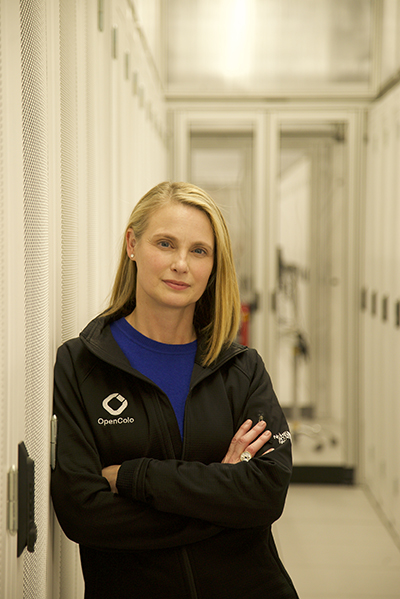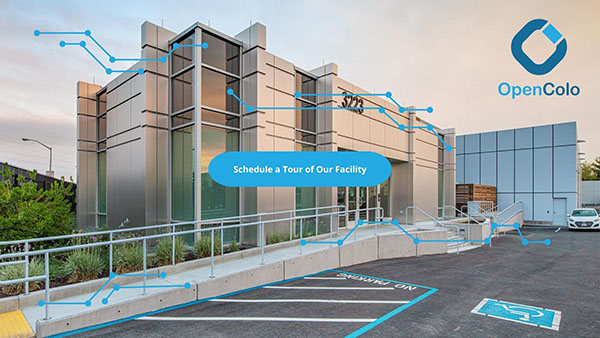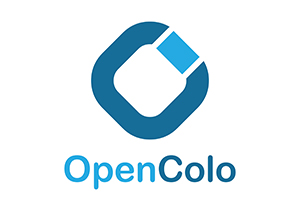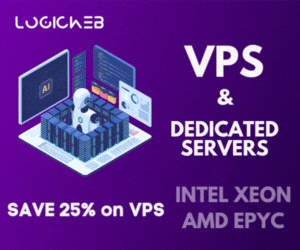Today we’ve got an awesome interview with Sally Simkiss, co-founder and CEO of Energy Group Networks LLC. I was very excited to chat with Sally because she’s had a very non-traditional career and is an example of how people who were not computer science majors or engineering professionals can transition into IT and be very successful.
Sally is also CEO of OpenColo, a boutique state-of-the-art datacenter in Santa Clara, CA. Read on to learn how they are thriving in the tough colo and datacenter market!
So what is a “boutique” data center and what makes your Santa Clara facility stand out in a very crowded marketplace?
Energy Group Networks is unusual in that we do not have any one target customer. We operate EGIHosting which offers bare metal dedicated servers and streaming audio and video, and we operate OpenColo which is the colocation/datacenter part of our company. We have small streaming customers that pay a few dollars a month as well as large enterprise corporations with sizable colocation footprints in our space. Every customer gets superior customer service.
The four partners were involved in every decision and design element incorporated in our building, from the power deployment, to the battery and generator selection to the design of the interior and outdoor spaces.
While there is more and more consolidation of data center properties in the valley, we are one of the only, if not the only, independent data centers left in the area. In a field that is dominated by large corporations, we are highly responsive and personal. When you tour our facility, you will do so with one of the owners.
How much is of this is truly innovating something new in the datacenter and how much is just having more control of your costs and capabilities?
It is not about innovation per se and rather reflects the fact that we were the customers of half a dozen other data centers in Silicon Valley for 15 years. This gave us invaluable insight into the aspects of the existing data center model we found frustrating and constraining. Examples include lengthy, complicated and inflexible contracts, long wait times and delays for installation and set-up, and complicated, expensive remote hands services. With these issues in mind, we designed our data center for maximum flexibility in order to serve the needs of any potential customer. For example, we created the first Data Hall for medium to high density deployment with a busway system for faster power upgrades. This allows us to avoid delays and expensive set-up fees for power upgrades. Offering affordable and experienced, 24/7 remote hands service eliminates another common frustration of data center customers.

Sally Simkiss CEO of Energy Group Networks LLC
Aren’t all datacenters that are rated at the same tier more or less the same? I’m assume you are going to say no with a big exclamation point.
The Tier system describes uptime and the level of redundancy of the power and cooling infrastructure. It is not a measure of value or customer satisfaction nor does it take into consideration 27/7 onsite staffing with full remote hands services.
Being on the West Coast, is the Asian market a key geography for you? If so, what do you do to cater to that market?
Yes, we have customers located in Asia as well as other parts of the world. As with customers located anywhere, our NOC team works with them to optimize routing for fastest content delivery by adding both on-site and backhauled carriers for our customers to use. Additionally, we have employees located in India and Europe for faster response to support and billing inquires, regardless of time zone.
Finding, recruiting, and retaining talent is very tough right now and I’ve heard recruiting people say this is one of the most brutal markets they’ve ever seen. How do you try to attract good talent and keep them?
Employees are always directly hired and employed by Energy Group Networks. We do not outsource any of our staff allowing us to provide a higher level of professional service to customers. We offer our employees competitive compensation and benefit packages. This, as well as employees feeling an integral part of our team, helps us lower turnover.
So what’s your company culture like inside?
The same philosophy that informs our interaction with existing and prospective customers is reflected inside our organization. My partners and I strive to be collaborative, open minded, flexible, honest and inclusive. We do not have a top-down organizational style and routinely ask for and welcome input and ideas for everyone.
What are the biggest headaches security-wise these days? 10-15 years ago I might have said DDoS attacks. Today you have very advanced bad actors all around the world. What keeps you guys up at night and how do you keep your customers safe?
Strict VPN, employee and physical security protocols address most security concerns. We completed a SOC 2 Type 1 audit last year and will again next month to make sure we are always considering and addressing risks.
As for DDoS attacks, we do continue to experience them. We offer a real time DDoS detection and mitigation solution that is always looking for attack traffic. When an attack is detected we automatically push this attack to scrubbing centers around the world. It’s a very impressive solution and comes included with all of our offerings.
How does someone with a B.A in American Studies get to be a CEO in the hosting industry? (I have a B.A. in History so maybe I need some career advice!)
Slowly. I’ve been with the company since its founding 18 years ago. Prior to that I sold antique paintings, first at a gallery and then as a consultant advising on fine art auctions. I believe sales, customer service and teamwork require essentially the same skills regardless of the industry, primarily good communication skills.
Raising two daughters taught me that each person is unique. I see it as my responsibility to understand and work with different needs, personalities and work styles to help each employee and customer be successful and meet their own goals.
I also learned about the technology and the business as we grew. But I do not pretend to be an expert in all areas. The partners listen to and defer to each other depending on their area of expertise.
My social media feeds over the last few years has been full of people promoting programs and ideas about how to get more women in STEM careers. You’re coming at the hosting industry from a very nontraditional angle. Obviously it’s working for you. What would you say to women who perhaps were not STEM majors, but are looking at IT from the outside and considering pursuing a career in this industry?
It might be because I attended a traditionally liberal arts college, but I know many people, both men and women, who majored in non STEM disciplines and now have careers in the IT industry. My daughter, for example, majored in Political Economy and Art History and joined Energy Group Networks from the nonprofit world. Like me, she has learned the more technical aspects of the business and now handles collocation sales, marketing and SOC compliance.
I would encourage anyone willing to work hard and learn as they go to be open to any number of industries outside their comfort zone. The so-called “soft skills” are just as important in the data center world as in any other.























Leave a Reply